Photos of the Colts' projected starters as listed on the team's depth chart.
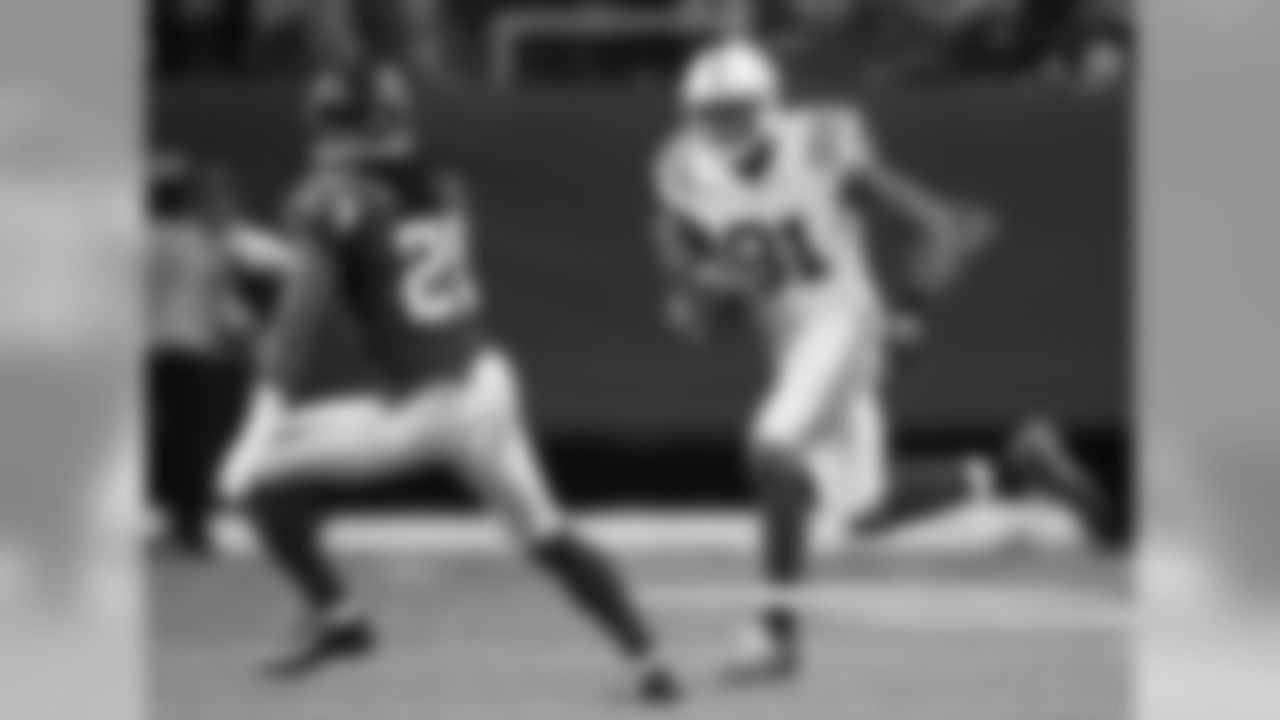
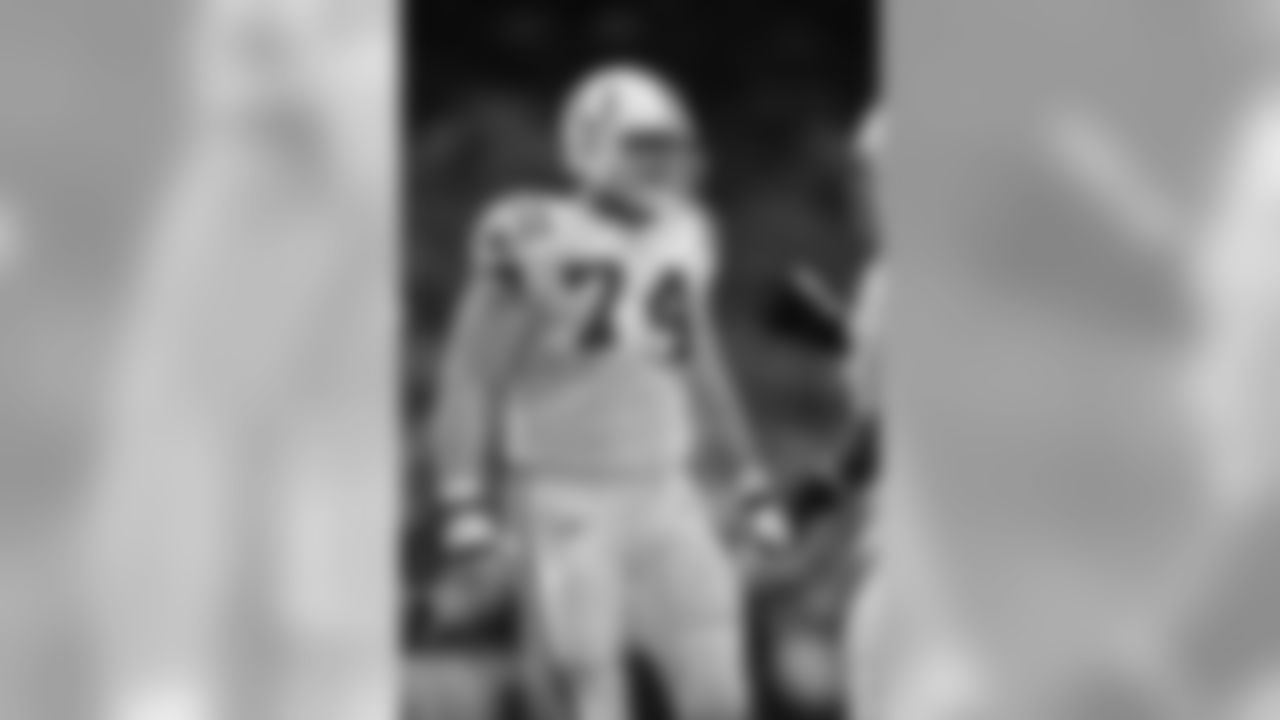
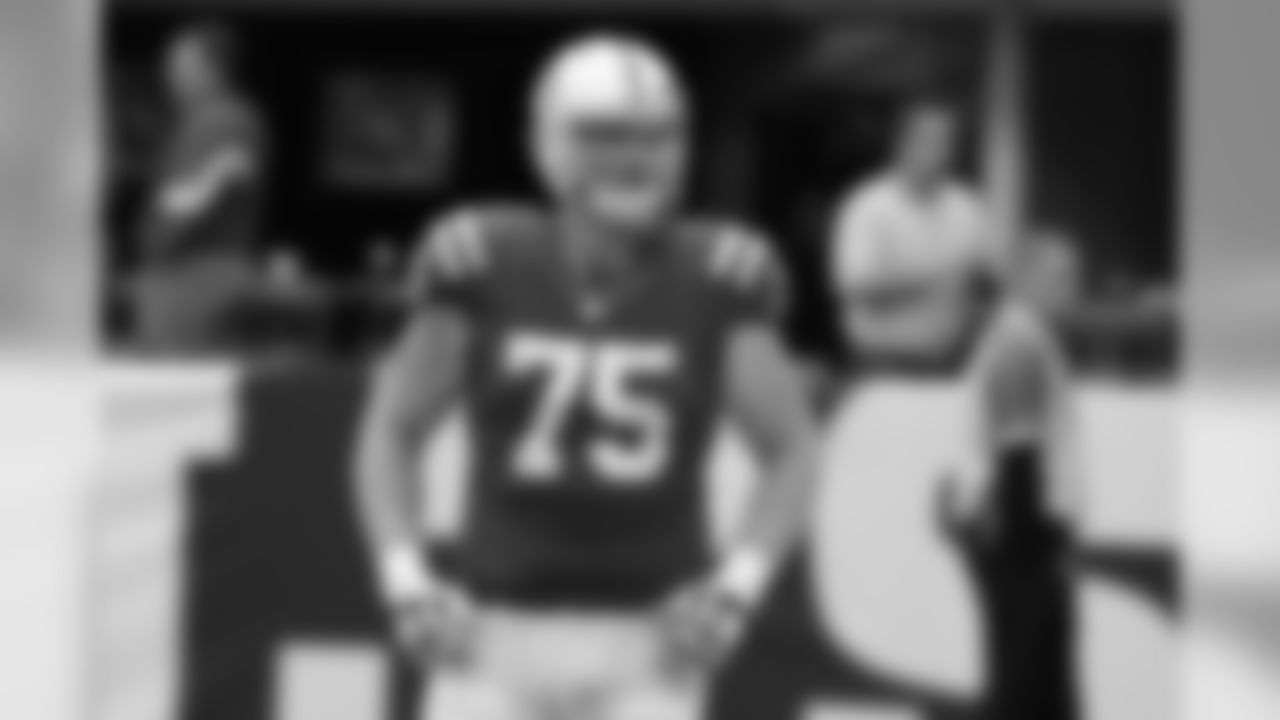

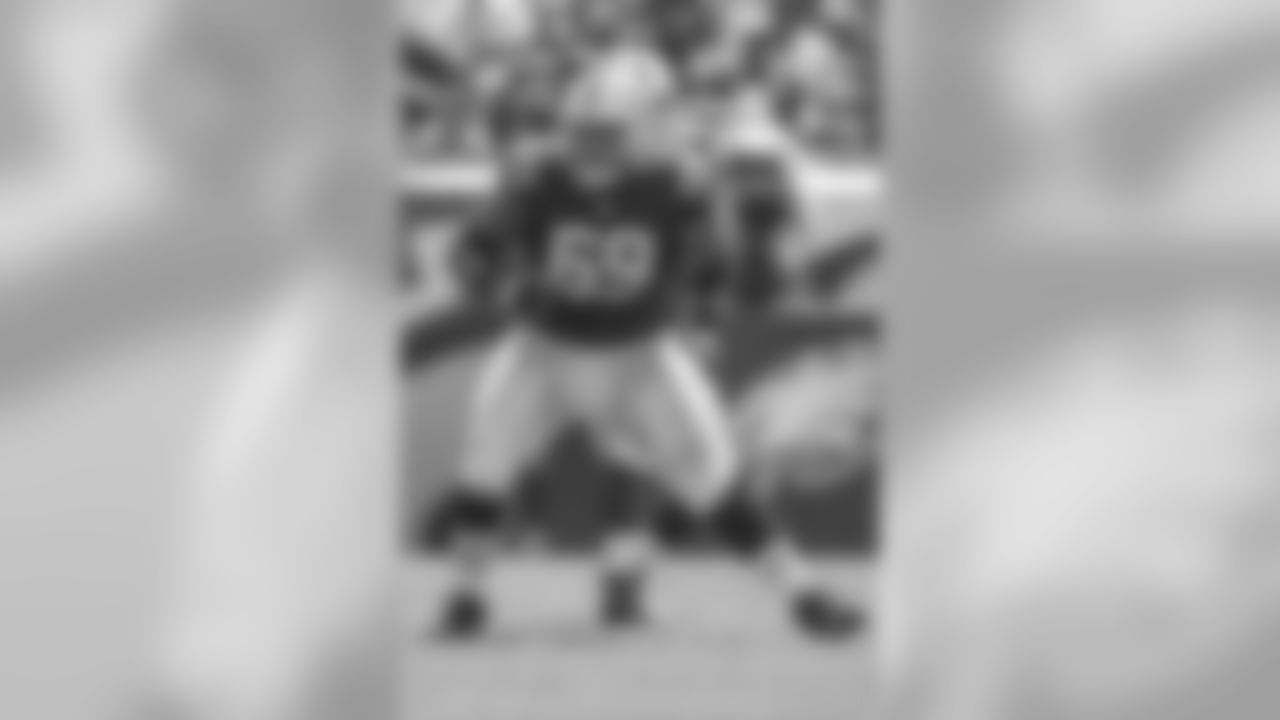

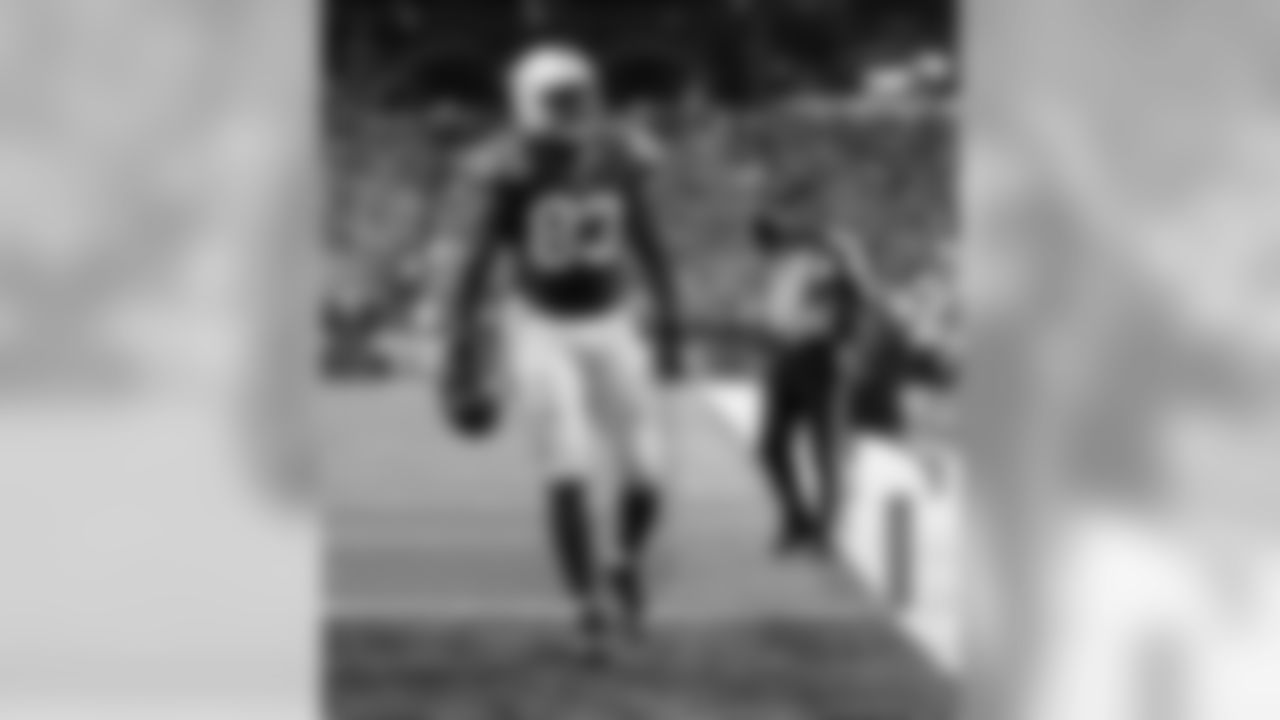

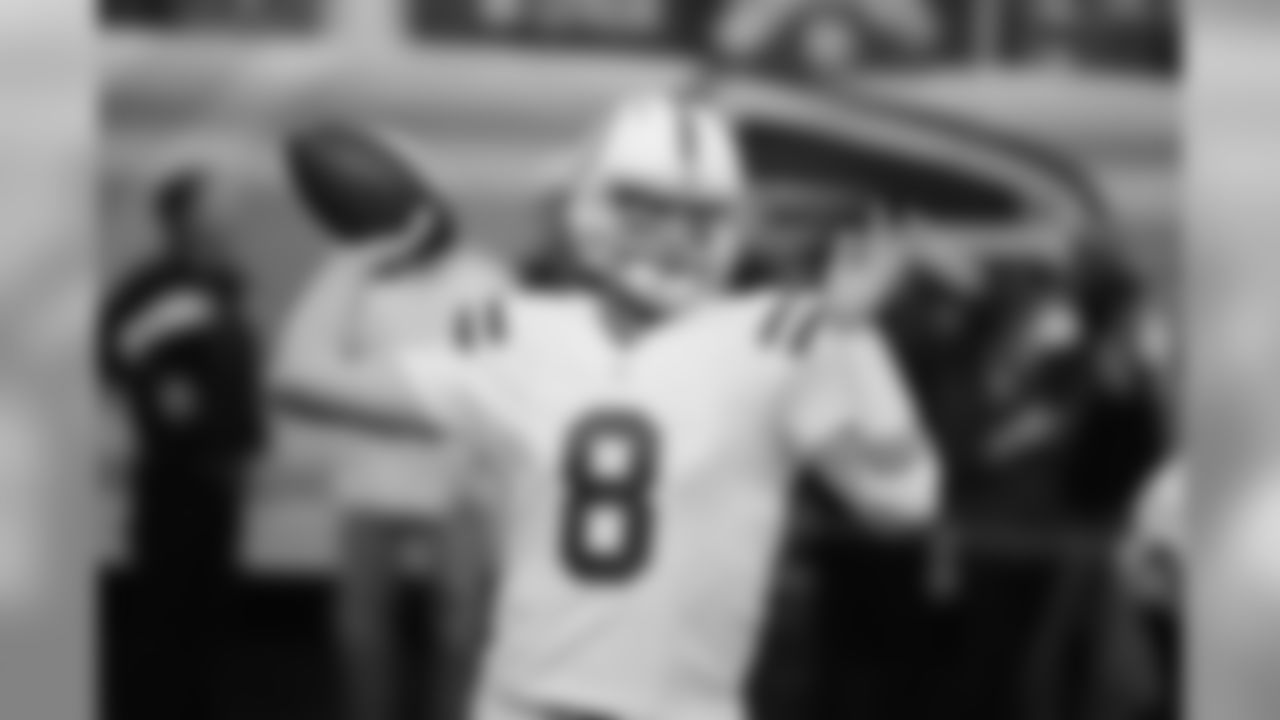



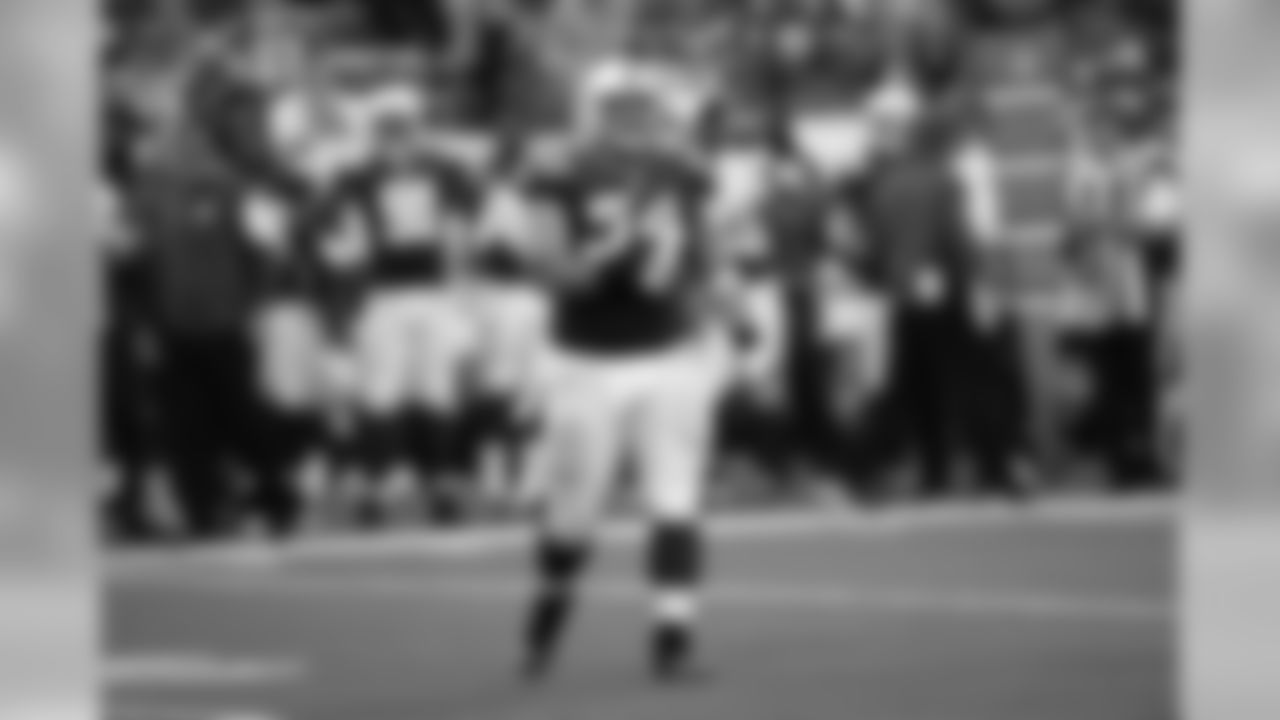

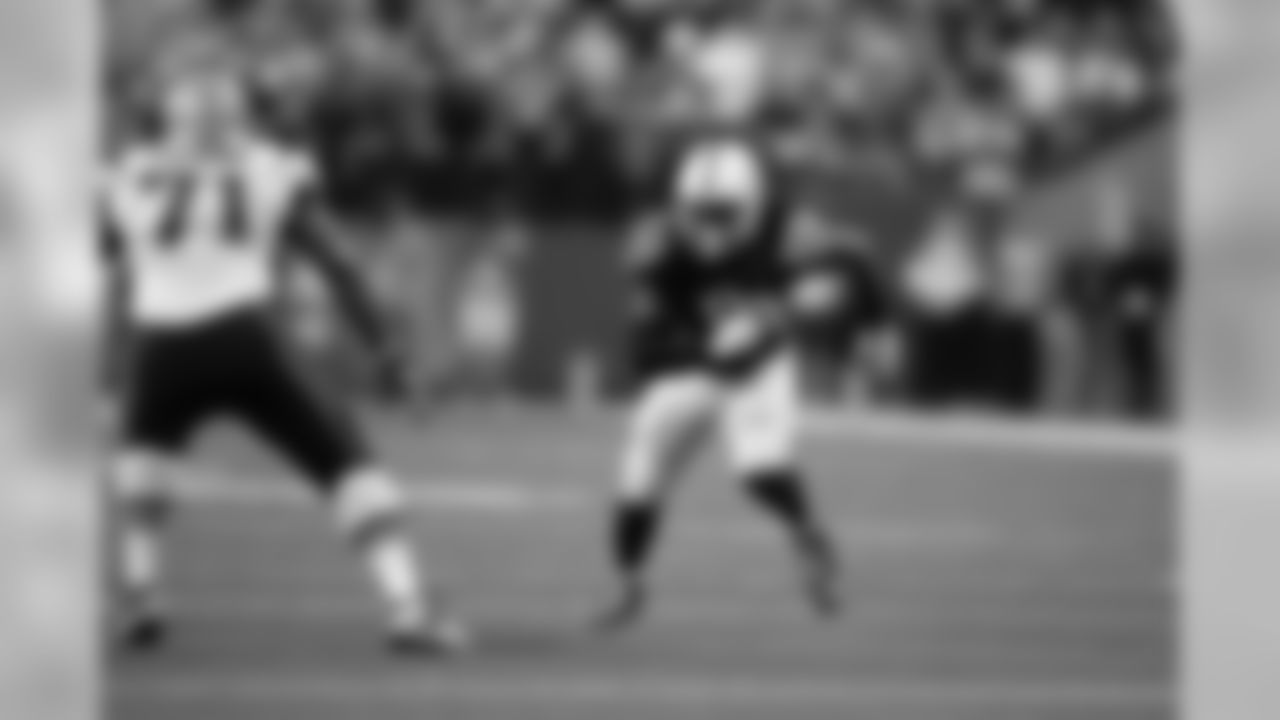
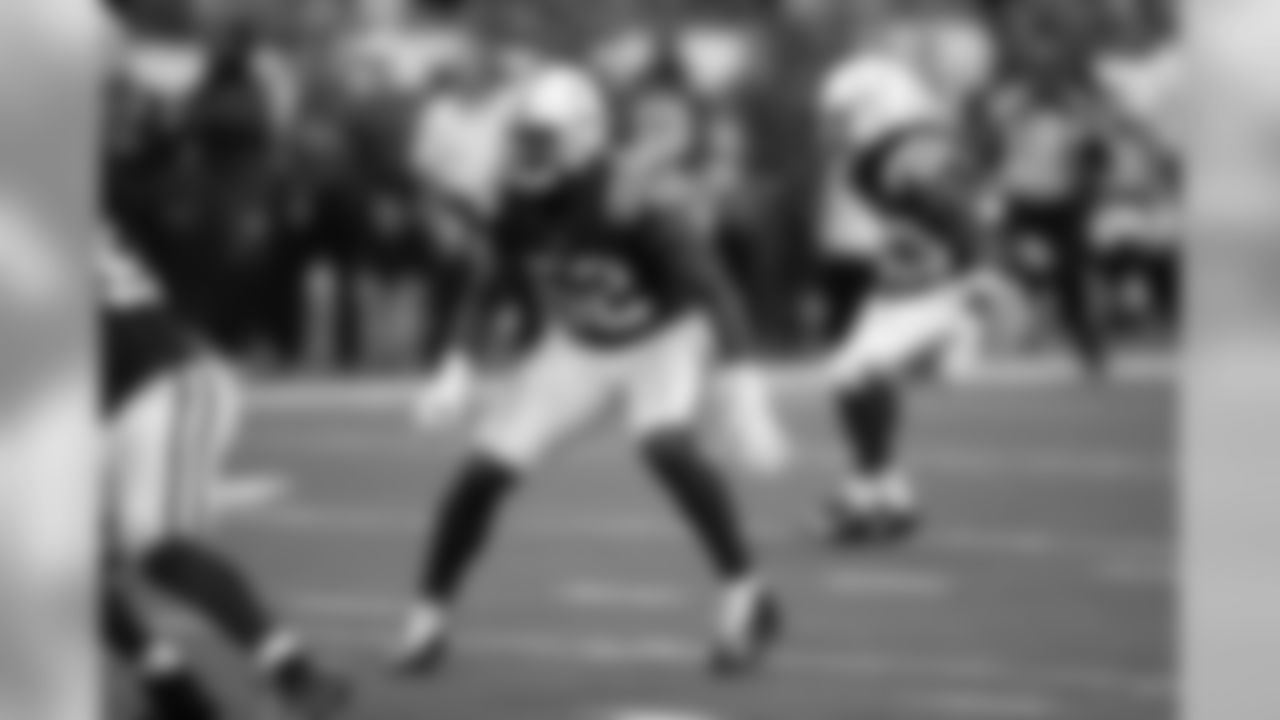
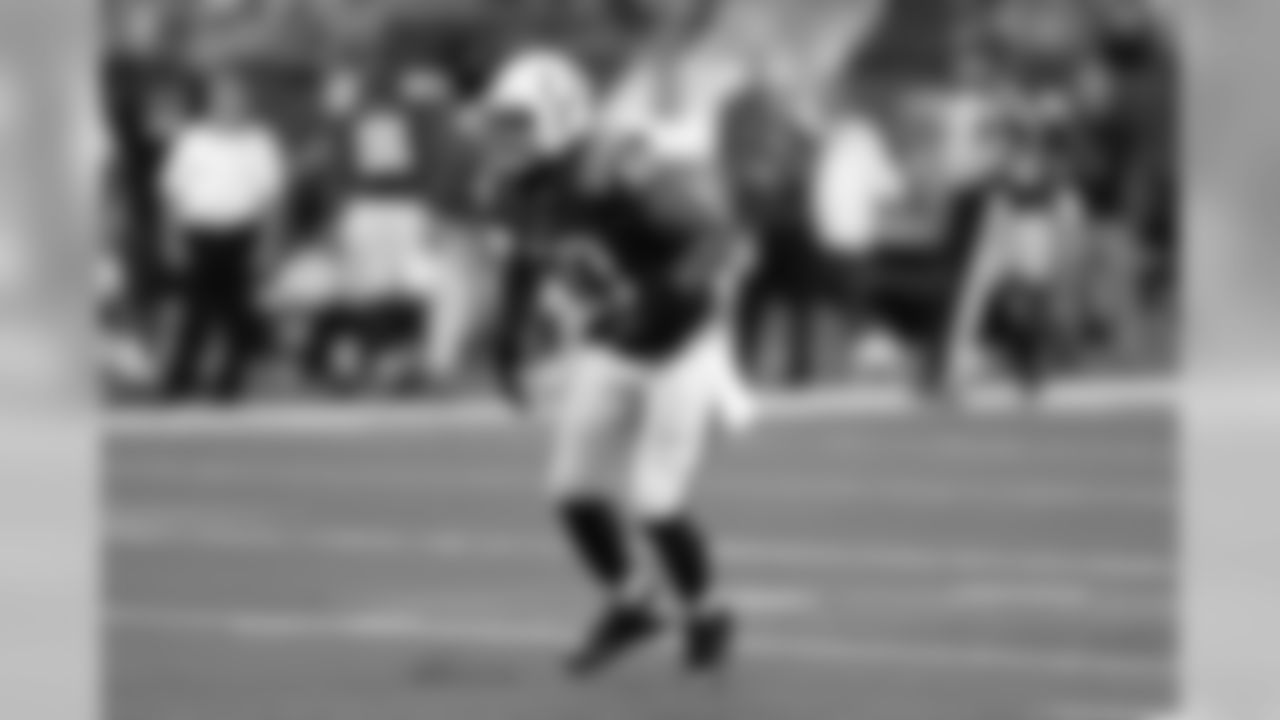
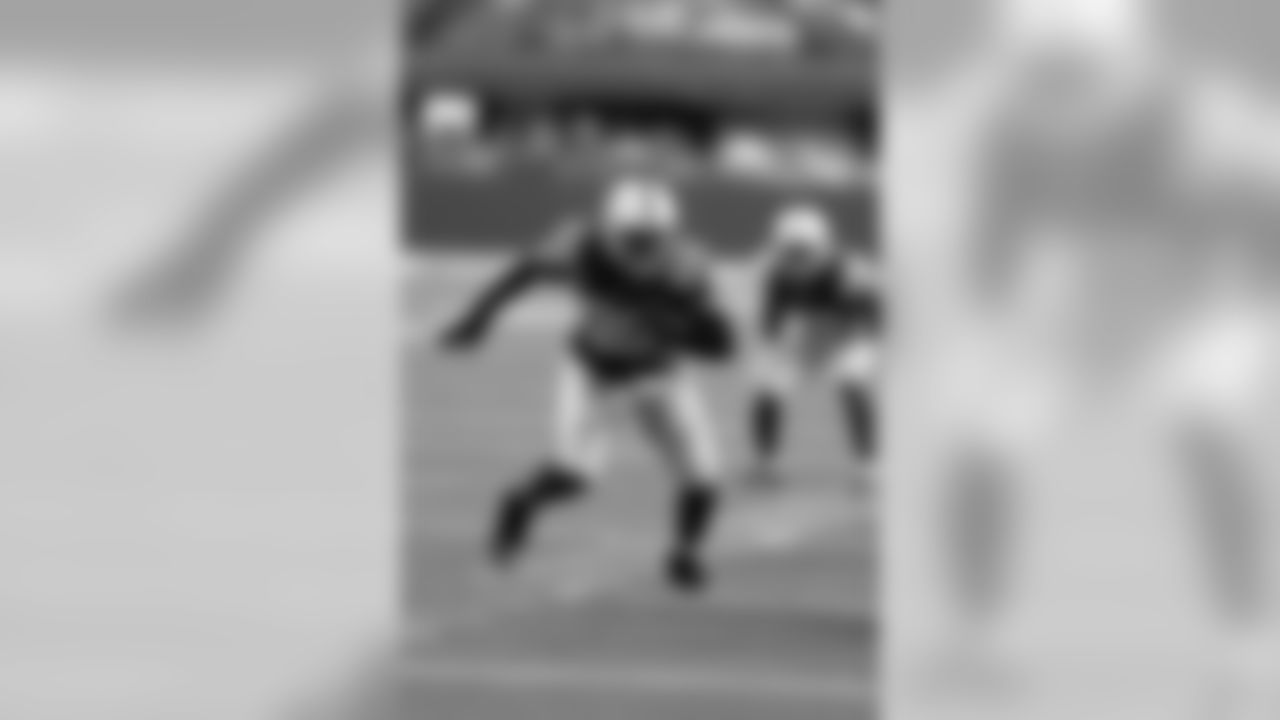



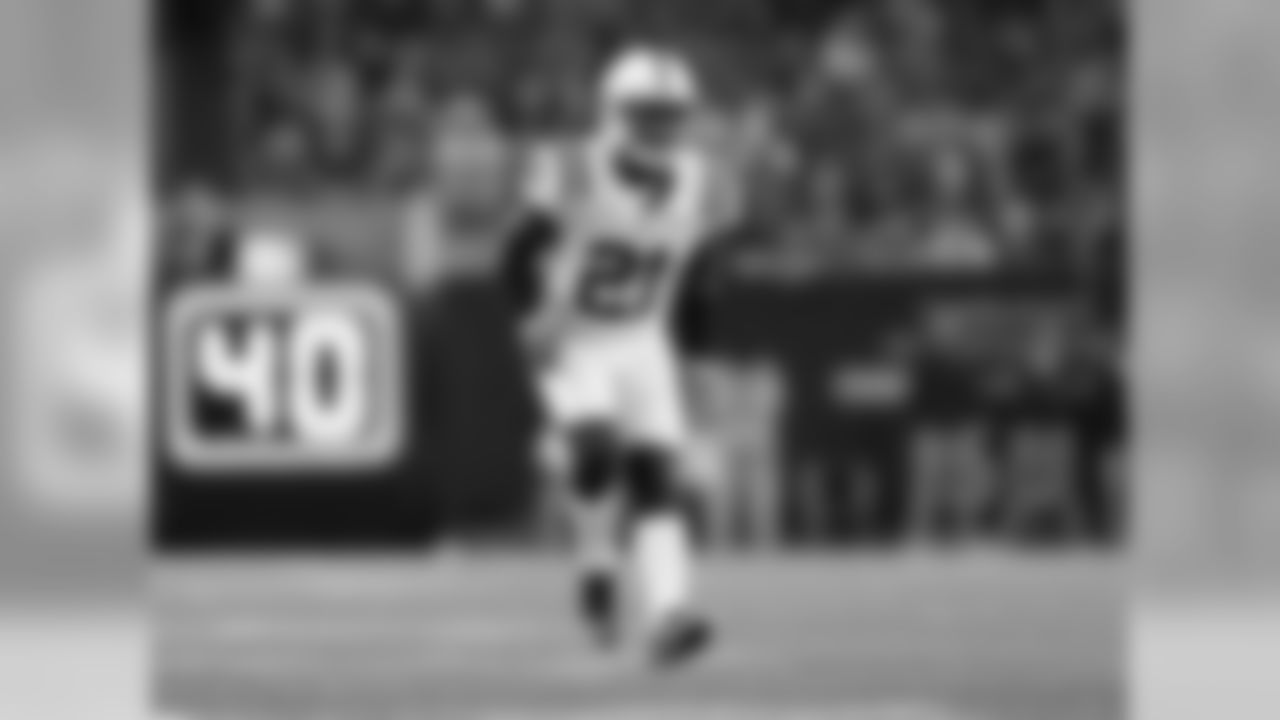
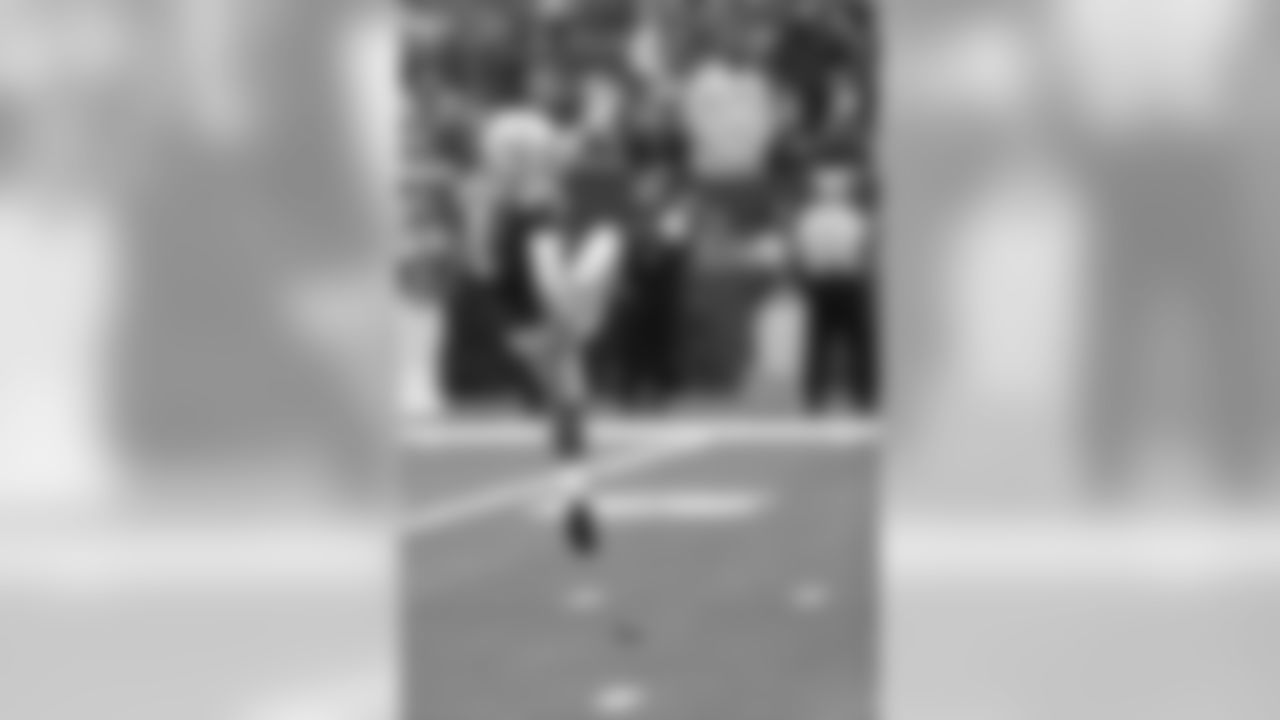
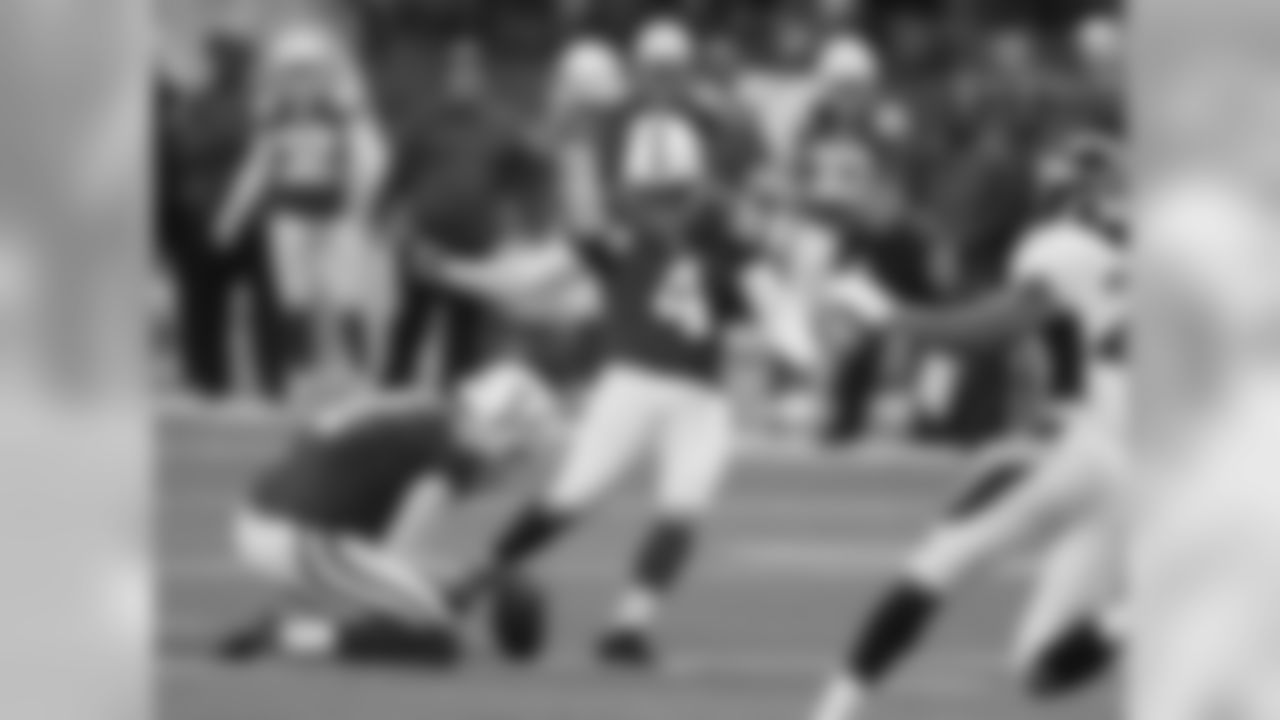
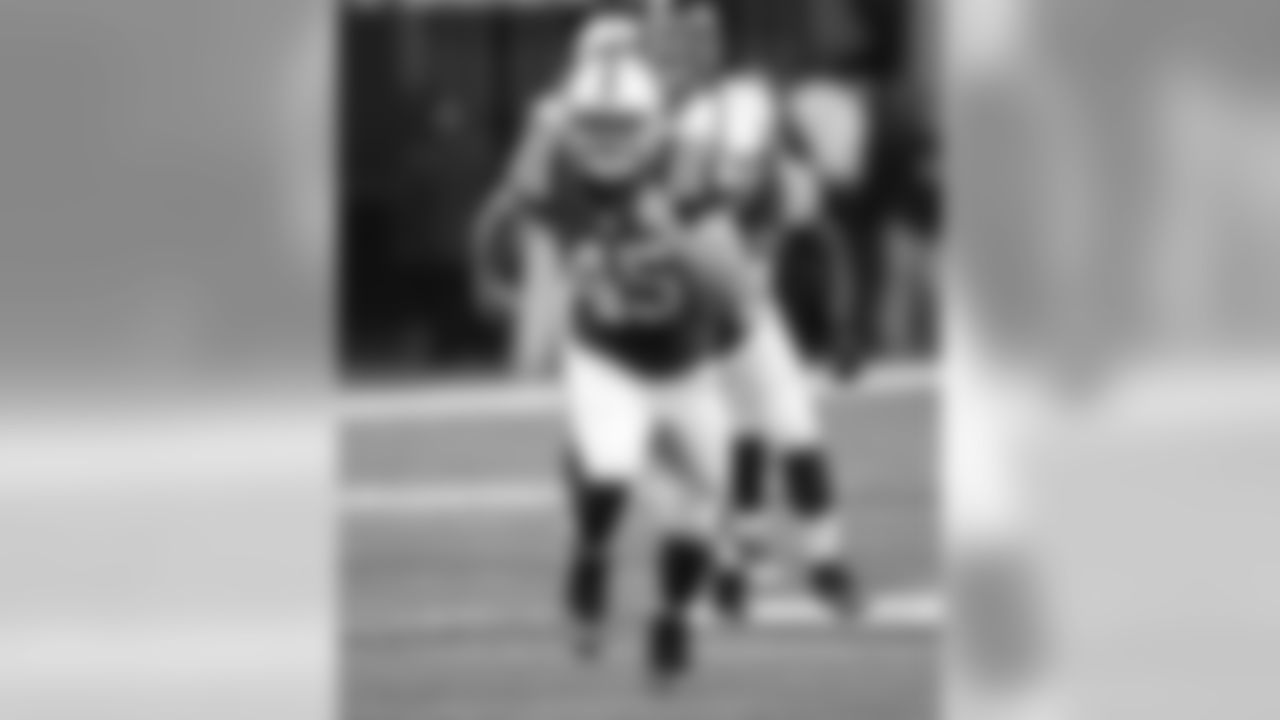
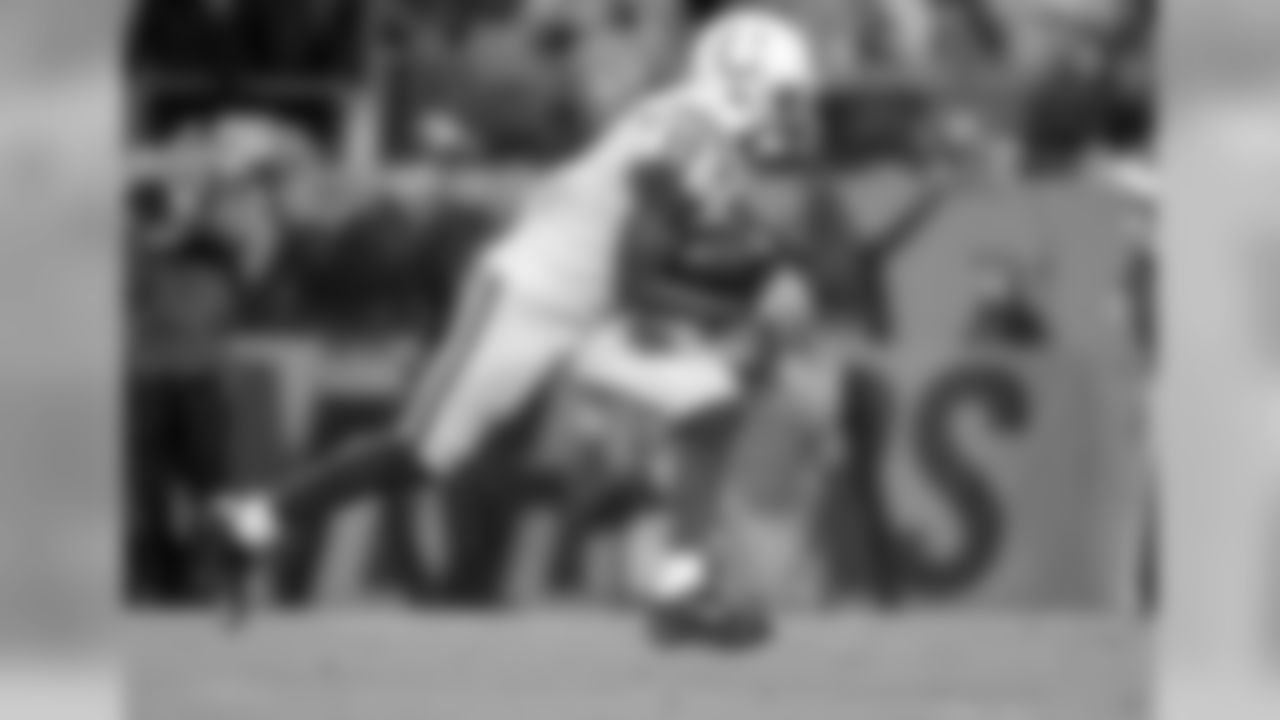
The Tampa Bay Buccaneers' all-time series with the Indianapolis (nee Baltimore) Colts includes the first overtime victory in franchise history, one of the most depressing overtime losses in team annals and…well, just a whole lot of points.
The Buccaneers and Colts have met an even dozen times, and in those 12 games produced 576 combined points, or exactly 48 per game. That's in excess of 10 more points per game than Tampa Bay has scored against all other opponents (37.8) in its four-decade history. The Tampa Bay-Indy connection has produced such finals as 38-35, 35-31 and 31-28. In other words, these games have often been high-scoring and close. The Bucs have scored 30 or more points in a game and loss just 11 times; twice have been at the hands of the Colts.
Overall, the Colts lead the series, 7-5, although Tampa Bay has won five of the last seven meetings, dating back to 1994.
The Colts were still operating out of Charm City when the Bucs first took them on, visiting Baltimore's Memorial Stadium for just the fourth regular-season game in franchise history. That Oct. 3, 1976 visit led to a predictable outcome, given the Buccaneers' newly-minted status and the Colts' soon-to-be 11-3 record that season. The Colts rolled to a 42-17 victory, which might actually seem like a modest margin of victory given that the home team gained 458 yards to the visitors' 89. The Buccaneers did score the first touchdown in franchise history in the fourth quarter on a 44-yard fumble return by CB Danny Reece.
It was only three years later when the Buccaneers went back to Baltimore, but this time they were emerging as a surprise playoff contender with the NFL's best defense. Most of that wasn't yet clear to the rest of the NFL, though, as this visit occurred in Week Two of the 1979 campaign, which the Bucs would start with a five-game winning streak.
They needed overtime to get this one, after gaining and then losing a nine-point lead in the fourth quarter. Tampa Bay's offense never even touched the football in overtime, as Baltimore won the toss but fumbled on the third play of sudden death. DE Randy Crowder sacked QB Greg Landry, forcing a fumble that was recovered by DT Bill Kollar at the Colts' 14. Neil O'Donoghue immediately came on to kick a 31-yard game-winning field goal. Crowder's overtime hit was the last of 10 sacks the Bucs visited upon Landry, which remains the franchise's single-game record, more than three decades later. That was not only the Bucs' first sudden death win but their first overtime game, period.
The Baltimore Colts never took a trip to Tampa; the franchise had moved to Indianapolis by the time the Colts played a game at Tampa Stadium in 1985. This was near the end of a forgettable 2-14 season for the Buccaneers, though the Colts (5-11) weren't much better. QB Steve Young threw a successful Hail Mary touchdown pass to WR Kevin House at the end of the first half and then gave the Buccaneers a six-point lead just a few seconds into the fourth quarter with a one-yard touchdown run (Donald Igwebuike missed the extra point). The Colts took the lead back on the next drive and then Albert Bentley iced the 31-23 win with a 26-yard touchdown run.
The Bucs went to Indy for the first time in 1987, then again in 1988, but didn't return with a win either time. The first of those games was the '87 season finale, with first-overall draft pick Vinny Testaverde making his fourth career start. It didn't go well; the Colts held him to eight completions in 31 attempts in a 24-6 win that gave the Colts the AFC East title by one game over New England and Miami. The '88 rematch fell at midseason and was much more competitive…at least it was in the end thanks to a 21-point fourth-quarter rally for the Buccaneers. Testaverde was much more productive this time around, completing 25 of 42 passes for 469 yards and three touchdowns, still the second-highest yardage total ever for a Buccaneer passer. Two interceptions helped the Colts build a 35-10 lead, but the Bucs got the ball back across midfield with a minute to play before former Buccaneer John Holt broke up a fourth-and-two pass to end the visitors' comebacks hopes in a 35-31 loss.
Tampa Bay got its second win in the series when the Colts came back to Tampa in 1991. In Richard Williamson's final game as the Bucs' head coach, his team broke a five-game losing streak with a 17-3 decision keyed by a defense that allowed 230 yards and sacked QB Jeff George five times. LB Broderick Thomas was the star with 11 tackles, two sacks and two forced fumbles. Sam Wyche was the Bucs' head coach when the Colts came back the next year, and this time George led the Colts to a 24-14 victory despite being picked off by Marty Carter twice and Darrell Fullington once. Testaverde threw a ton of passes against the Colts again (23 of 47 for 286 yards) but a deflected-ball interception at the Bucs' two-yard line in the first quarter set up an easy Colts touchdown.
Photos of the top 10 performances of rushing yards per game in the last 10 years (2005-2015).
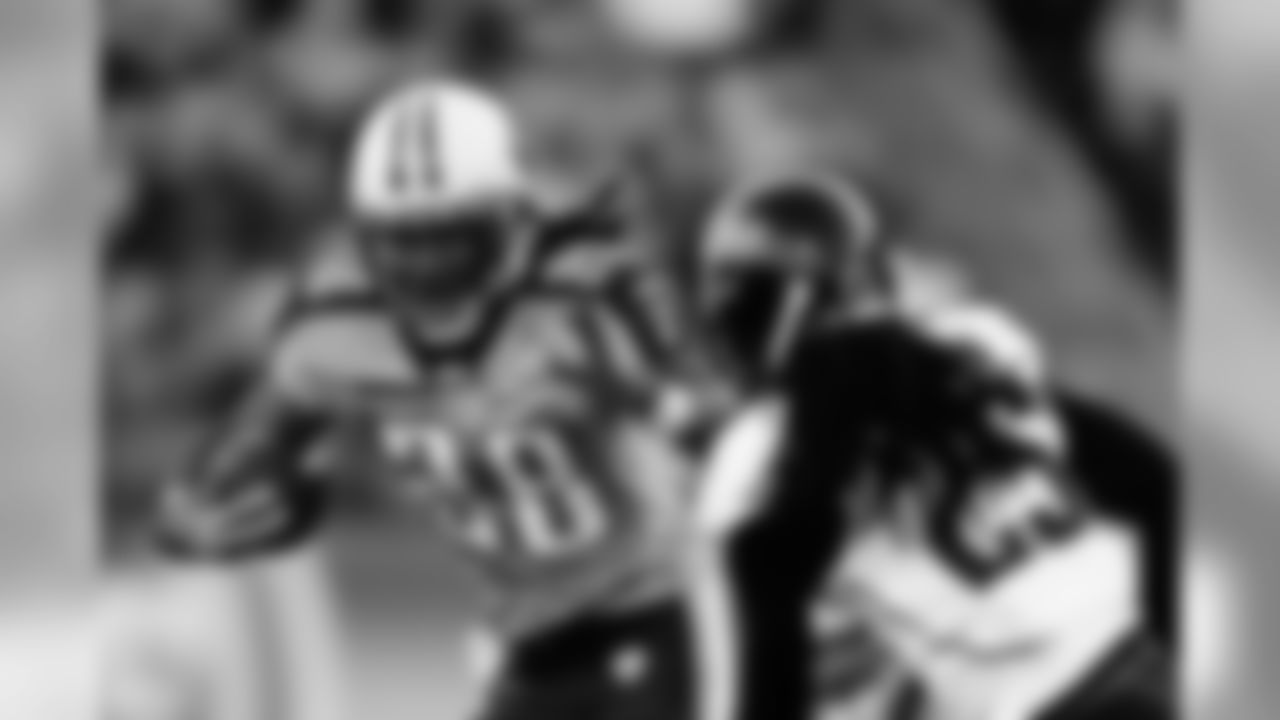
TEN vs. JAX, 11/01/09

HOU vs. IND, 9/12/10
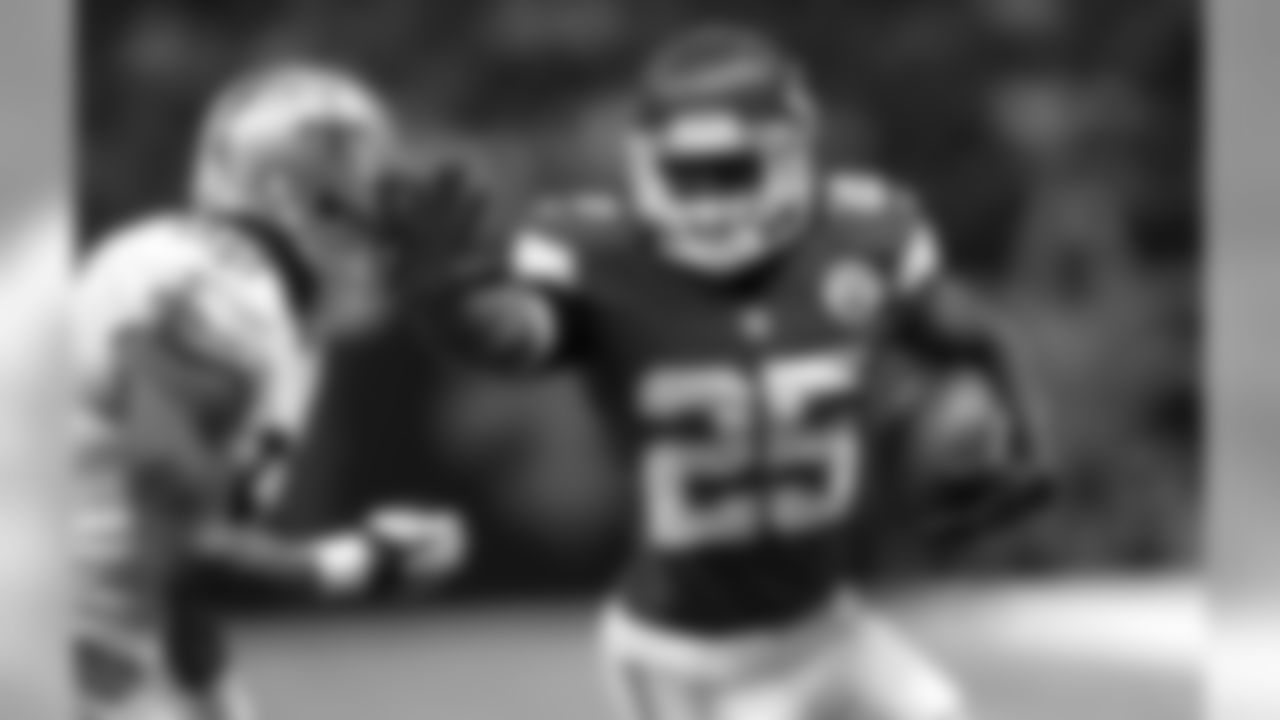
KC vs. NO, 9/23/12
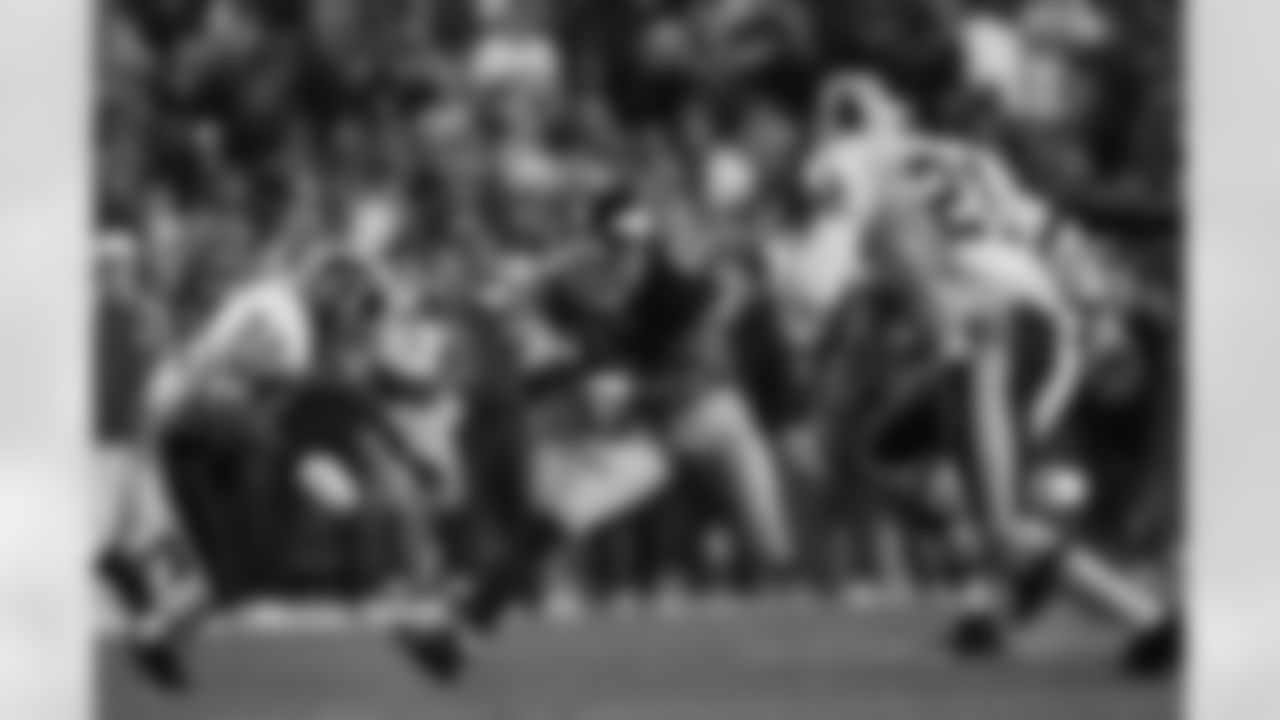
NYG vs. WAS, 12/30/06
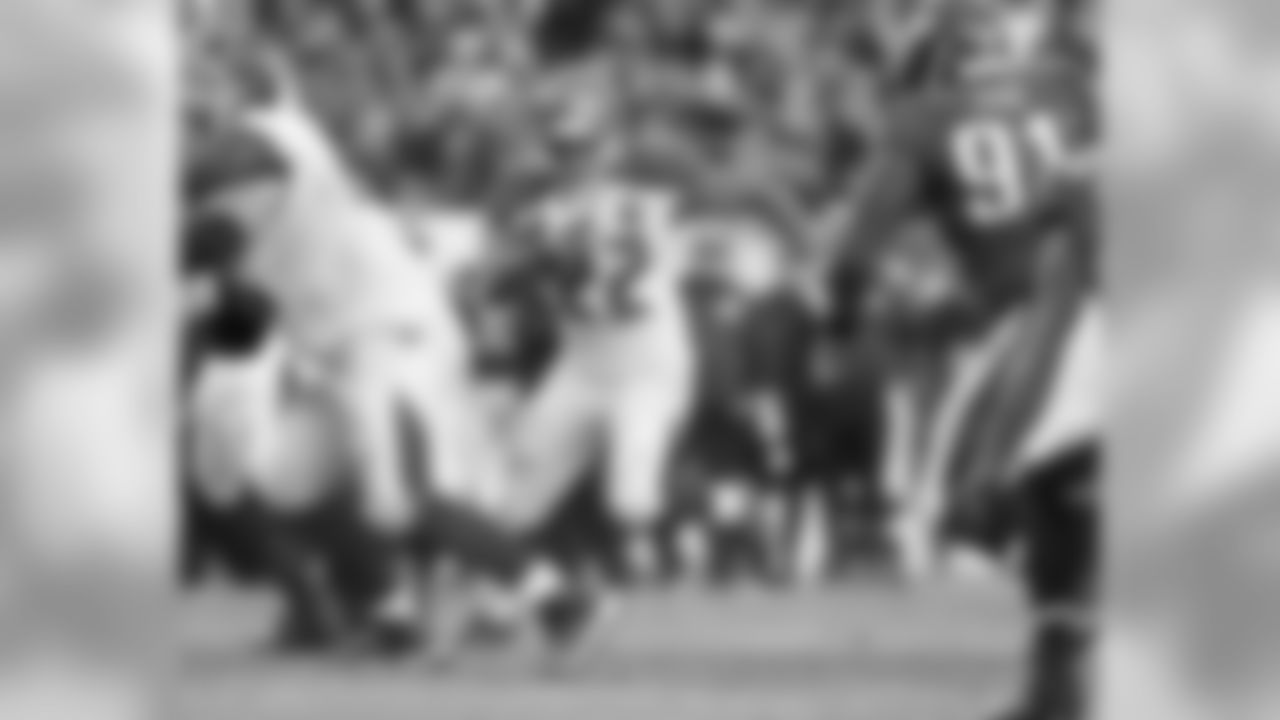
TB vs. PHI, 11/22/15

TB vs. OAK, 11/04/12
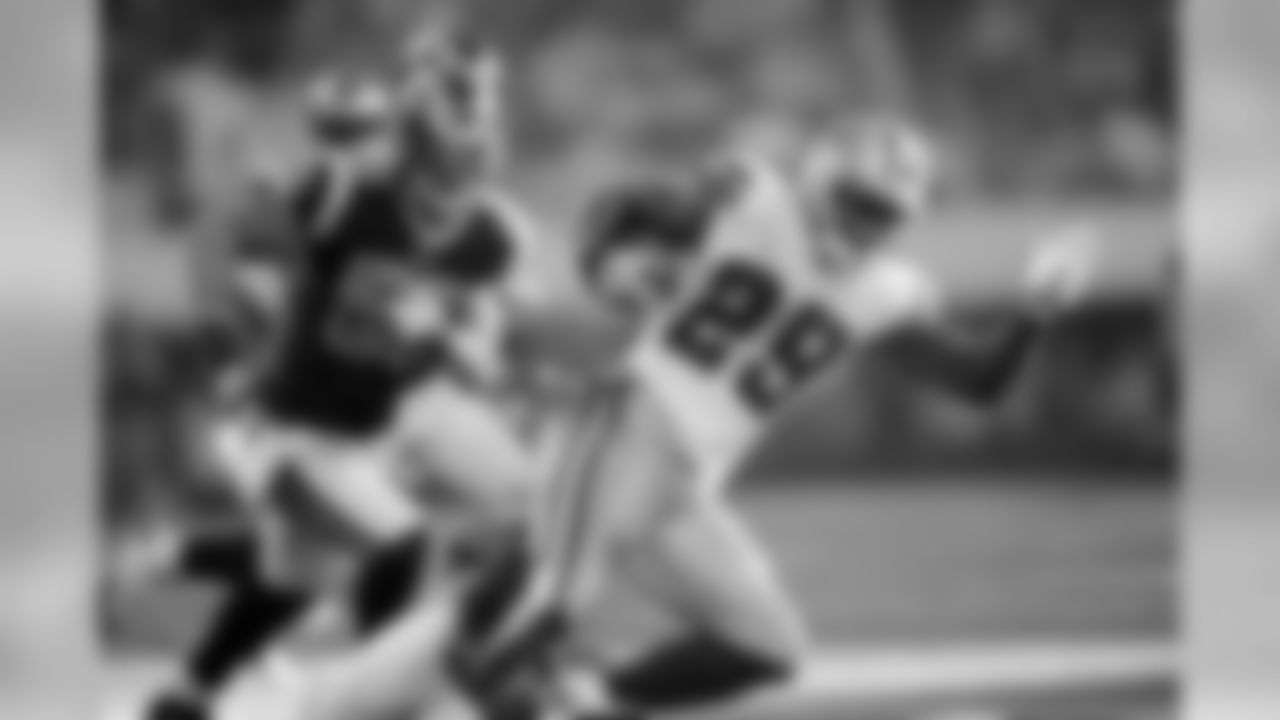
DAL vs. STL, 10/23/11
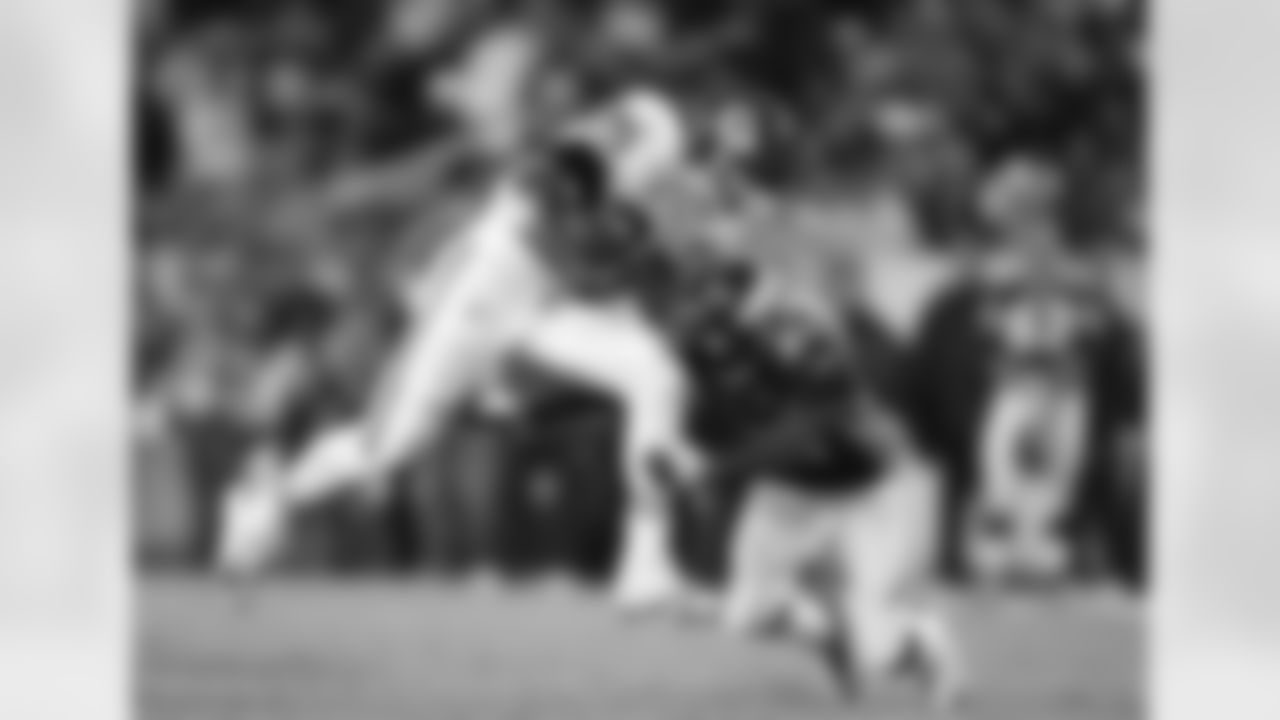
KC vs. DEN, 1/3/10

CLE vs. KC, 12/20/09
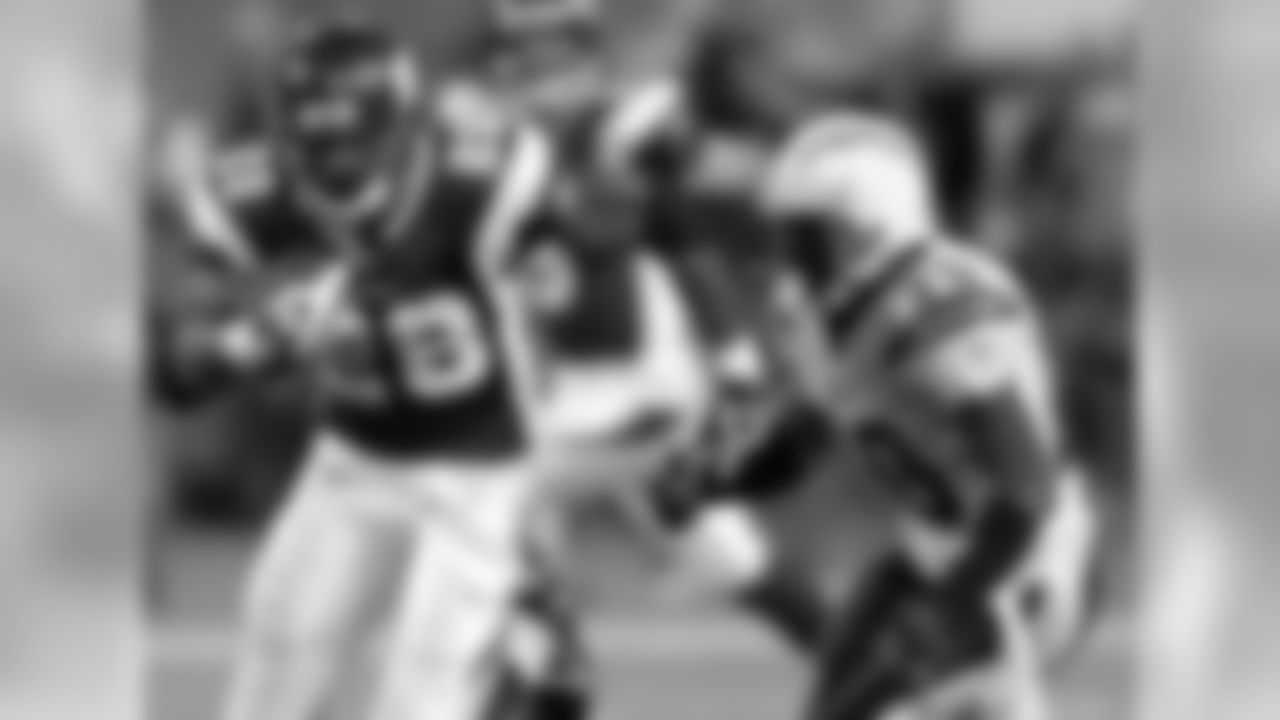
MIN vs. SD, 11/04/07
The next two games went to the Buccaneers, including a relatively easy 24-10 home win in Week Two of the 1994 season. QB Craig Erickson – who would later be traded to the Colts during the following offseason – had his best day as a Buccaneer with 19 completions in 24 attempts for 313 yards, three touchdowns and no interceptions. The Colts threatened with their last two drives but one ended when Lonnie Marts and Hardy Nickerson stopped Roosevelt Potts a yard short on a fourth-and-goal run from the four, and the other was clipped by Martin Mayhew interception.
The Bucs opened the 1997 season with five straight wins and would eventually go on to break a 15-year playoff drought in Tony Dungy's second year at the helm. However, they had dropped three in a row after that fast start before heading to Indianapolis for what proved to be a thriller on the first weekend in November. Former Buccaneer Kelly Holcomb made his first career start at quarterback for the Colts and was solid, though Tampa Bay's Trent Dilfer was better with three touchdowns and no interceptions. The game was tied at 21-21 in the fourth quarter until Robert Blackmon scooped up a Mike Alstott fumble and returned it 18 yards for a touchdown. Dilfer countered with a 24-yard touchdown pass to WR Karl Williams, who also had a big day returning punts, with three for 99 yards. The last was a 21-yarder to the Colts' 45 that set up Michael Husted's game-winning 36-yard field goal with eight seconds left.
That aforementioned overtime stunner occurred in 2003, in the early stages of the Buccaneers' ultimately unsuccessful defense of their first Super Bowl title. Tampa Bay was 2-1 heading into the game and looked well on its way to 3-1 when it took a 35-14 lead in the fourth quarter on a Ronde Barber pick-six. The Bucs had also scored on a fluky play in the third quarter when Colts S Mike Doss intercepted a pass but fumbled on his return and WR Keenan McCardell caught it on a hop and ran 57 yards for a touchdown.
McCardell also caught touchdown passes for 74 and 15 yards from Brad Johnson, but all that did was set up one of the most incredible comebacks in NFL history, all played out in front of a Monday Night Football audience. There was just 5:09 left on the clock when Barber scored to make it a three-touchdown game, but that was enough for QB Peyton Manning, who was aided by a 90-yard kickoff return and a successful onside kick. Manning led three TD drives in those five minutes, the last one tying the game on Ricky Williams' one-yard run with 38 seconds left. In overtime, Mike Vanderjagt missed a 40-yard field goal but the Bucs' Simeon Rice was flagged for "leaping" and Vanderjagt was good on his second-chance kick from 29 yards to get the 38-35 win for the Colts. Had that first try stood, it would have been the only field goal Vanderjagt missed all season.
The Bucs and Colts have played twice since that game, each winning at home. In 2007, a Week Five matchup pitted a 3-1 Tampa Bay team against a 4-0 Indianapolis squad, and the Colts stayed undefeated with a 33-14 decision. TE Dallas Clark, who would later play for the Buccaneers, shook off an absolutely brutal hit from Bucs S Tanard Jackson to catch seven passes for 49 yards and a touchdown. Bucs QB Jeff Garcia threw two TD passes to TE Alex Smith but the Bucs were seriously out-manned on offense, putting up 177 yards to the Colts' 400. The most recent meeting was in Tampa in 2011, another Monday night affair that didn't have quite as much drama, although this time it was the Bucs that rallied for victory in the fourth quarter. After falling behind 17-10, Tampa Bay tied the game on Josh Freeman's 13-yard TD pass to Preston Parker in the third quarter and then won it on LeGarrette Blount's 35-yard scamper. Tampa Bay improved to 3-1 as its offense clicked all night, racking up 466 yards of offense. Unfortunately, that was also the Buccaneers' penultimate victory of that season.
Bucs-Colts Game-by-Game Record:
|
1976 |
L, 42-17 |
Baltimore |
|
1979 |
W, 29-26 |
Baltimore |
|
1985 |
L, 31-23 |
Tampa |
|
1987 |
L, 24-6 |
Indianapolis |
|
1988 |
L, 35-31 |
Indianapolis |
|
1991 |
W, 17-3 |
Tampa |
|
1992 |
L, 24-14 |
Tampa |
|
1994 |
W, 24-10 |
Tampa |
|
1997 |
W, 31-28 |
Indianapolis |
|
2003 |
L, 38-35 |
Tampa |
|
2007 |
L, 33-14 |
Indianapolis |
|
2011 |
W, 24-17 |
Tampa |
Series Notes:
- Overall Season Series: Colts lead, 7-5
- Bucs' Home Record: 3-3
- Bucs' Road Record: 2-4
- Current Streak: Win 1 (2011)
- Buccaneers' Longest Winning Streak: 2 (1994-97)
- Colts' Longest Winning Streak: 3 (1985-88)
- Regular Season Point Total: Buccaneers 265, Colts 311
- Most Points in a Game for Tampa Bay: Colts 38, Buccaneers 35 (2003)
- Most Points in a Game for Indianapolis: Colts 38, Buccaneers 35 (2003)
- Most Points, Combined: 73; Colts 38, Buccaneers 35 (2003)
- Fewest Points in a Game for Tampa Bay: Colts 24, Buccaneers 6 (1987)
- Fewest Points in a Game for Indianapolis: Buccaneers 17, Colts 3 (1991)
- Fewest Points in a Game, Combined: 20; Buccaneers 17, Colts 3 (1991)






















